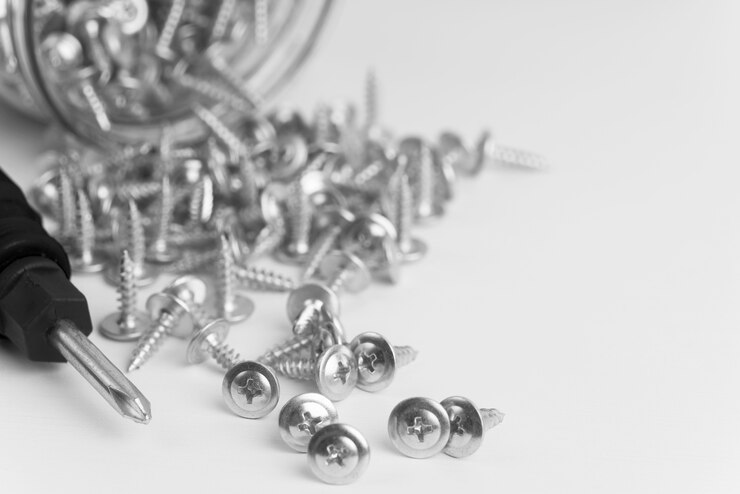When it comes to fastening solutions, few components are as critical and versatile as A4 screws. These screws, known for their remarkable corrosion resistance and strength, are essential in a wide range of applications, from marine environments to industrial settings. In this comprehensive guide, we will delve deep into the world of A4 screws, exploring their composition, benefits, applications, and much more.
Understanding A4 Screws
What Are A4 Screws?
A4 screws are a type of stainless steel fastener known for their exceptional durability and resistance to corrosive environments. They are made from austenitic stainless steel, specifically grade 316, which includes molybdenum. This element significantly enhances their corrosion resistance, especially against chlorides and other industrial solvents.
Composition of A4 Screws
A4 screws are composed primarily of iron, chromium, nickel, and molybdenum. The typical chemical composition includes:
- Iron (Fe): The primary component, providing the base for the alloy.
- Chromium (Cr): Around 16-18%, offering excellent corrosion resistance.
- Nickel (Ni): Approximately 10-14%, enhancing corrosion resistance and ductility.
- Molybdenum (Mo): About 2-3%, significantly improving resistance to pitting and crevice corrosion.
Benefits of Using A4 Screws
Superior Corrosion Resistance
One of the most significant advantages of A4 screws is their superior corrosion resistance. This makes them ideal for use in marine environments, chemical processing plants, and any application where exposure to harsh conditions is expected.
High Strength and Durability
A4 screws are known for their high tensile strength and durability. They can withstand high levels of stress and strain, making them suitable for structural applications where reliability is paramount.
Versatility
These screws are incredibly versatile and can be used in various applications, including:
- Marine construction
- Chemical processing equipment
- Food and beverage industry
- Pharmaceutical manufacturing
- Architectural applications
Aesthetic Appeal
The sleek, polished appearance of A4 screws makes them a popular choice for architectural and decorative applications. They maintain their appearance over time, even in corrosive environments.
Applications of A4 Screws
Marine Environments
Due to their excellent resistance to saltwater corrosion, A4 screws are extensively used in marine applications. This includes:
- Boat building
- Docks and piers
- Offshore oil rigs
Chemical and Pharmaceutical Industries
A4 screws are ideal for use in chemical and pharmaceutical industries where exposure to aggressive chemicals and solvents is common. Their resistance to pitting and crevice corrosion ensures the integrity of critical equipment.
Food and Beverage Industry
In the food and beverage industry, hygiene and cleanliness are paramount. A4 screws are used in manufacturing and processing equipment because they do not react with food products and can withstand frequent cleaning and sterilization.
Construction and Architecture
For both structural and aesthetic purposes, A4 screws are a preferred choice in construction and architecture. They are used in:
- Building facades
- Structural frameworks
- Railings and balustrades
Selecting the Right A4 Screws
Size and Dimensions
Choosing the right size and dimensions is crucial for the success of any project. A4 screws come in various lengths, diameters, and thread types. It’s essential to select the correct specifications based on the requirements of your application.
Thread Types
A4 screws are available with different thread types, including:
- Coarse Threads: Suitable for soft materials like wood and plastic.
- Fine Threads: Ideal for hard materials like metal and require precise alignment.
Head Types
The head type of a screw determines how it sits in the material and how it is driven. Common head types for A4 screws include:
- Pan Head
- Flat Head
- Hex Head
- Socket Head
Coatings and Finishes
While A4 screws are inherently resistant to corrosion, additional coatings and finishes can provide extra protection and enhance their appearance. Common coatings include:
- Zinc Plating
- Passivation
- Polishing
Installation Tips for A4 Screws
Pre-Drilling
For materials prone to splitting or cracking, pre-drilling a pilot hole is recommended. This ensures a secure fit and prevents damage to the material.
Torque Settings
Using the correct torque settings is crucial to avoid over-tightening or under-tightening the screws. Over-tightening can lead to stripping or breaking, while under-tightening can result in a loose connection.
Using the Right Tools
Ensure you use the appropriate tools for installation. This includes screwdrivers, wrenches, or power tools designed for the specific head type of your A4 screws.
Maintenance
Regular inspection and maintenance of screws in critical applications can prevent failures and prolong the lifespan of your installations. Look for signs of wear, corrosion, or loosening and address any issues promptly.
Why Choose A4 Screws Over Other Types?
Comparison with A2 Screws
While A2 screws (also known as grade 304 stainless steel) are widely used for their corrosion resistance, A4 screws offer superior protection in harsher environments due to the addition of molybdenum.
Cost vs. Performance
Although A4 screws are typically more expensive than other stainless steel screws, their long-term performance and durability often justify the initial investment, especially in applications where failure is not an option.
Environmental Impact
Stainless steel, including A4 screws, is highly recyclable, making it an environmentally friendly choice. The longevity and durability of A4 screws also mean fewer replacements and less waste over time.
Conclusion
A4 screws are an essential component in many industries due to their unmatched corrosion resistance, strength, and versatility. Whether you are working in marine construction, chemical processing, or high-end architecture, A4 screws provide the reliability and performance needed to ensure the success of your projects. By understanding their composition, benefits, and applications, you can make informed decisions and achieve optimal results in your endeavors.
Additional:

